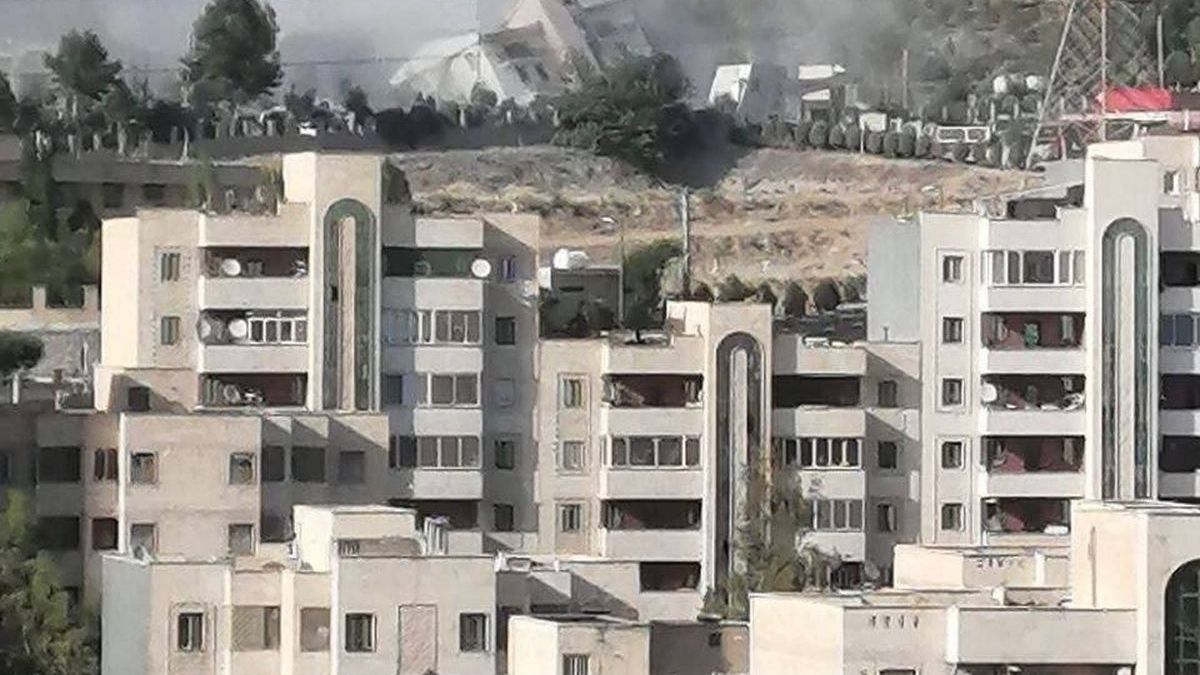After the attacks of October 7, 2023, Benjamin Netanyahu promised that Israel would change the Middle East forever. What at the time could seem one more proclamation amid the war rhetoric of the prime minister has taken shape in the almost two years since then.
The crossfire between Israel and Iran does not cease; On the contrary, it intensifies. And with him, a restlessness reappears that the world seemed to have relegated: the nuclear threat. Humanity is again dangerously close to the abyss, at the mercy of a calculation error or an act of political pride that triggers a scenario of unimaginable consequences.
The moment chosen by Israel does not seem accidental. Just one day before the attack, the International Atomic Energy Agency (OIEA) warned that it can no longer guarantee that the Iranian nuclear program is exclusively peaceful. At the same time, bilateral negotiations between Tehran and Washington advanced to avoid the militarization of the program. Israeli bombardment not only killed Ali Shamkhani, key advisor to Supreme Leader Ali Jamenei and direct interlocutor in that process, but seriously undermined any immediate possibility of diplomatic progress.
Netanyahu has been warning for decades about what he considers the main existential threat to Israel: the Iran regime. Even from the United States Congress he has openly questioned diplomatic approaches to Tehran, as he did during the presidency of Barack Obama, denouncing the nuclear agreement as a free way towards a “nuclear holocaust.” In his vision, only the collapse of the Ayatolás regime could guarantee Israel’s security against the atomic threat.
This logic finds a precedent in the Israeli attack to the Iraqi nuclear reactor of Osirak in 1981. Netanyahu claims it as a strategic milestone that frustrated the atomic program of Sadam Husein although in effect far from dismantling it, he pushed him towards hiding, prolonging his development until he was dismantled after the Gulf War and the subsequent fall of the Iraqi regime.
This time, the Israeli offensive has gone beyond nuclear facilities. He has hit military infrastructure, aerial defenses and high command of the Iranian army, risking to unleash a regional war that could also drag the United States with the consequences that this could imply.
Why now? In the internal plane, Netanyahu seeks to rehabilitate his image after Hamas’s attack in October 2023, considered the greatest security failure in Israel’s history. At the regional level, the perception is that Iran is going through a moment of extreme weakness: Hamas, decimated, struggled for its political survival rather than military; Hezbolá has lost influence on the Lebanese board; And Yemen’s hutis, despite the agreement with Washington on navigation in the Red Sea, are still the target of Israeli reprisals. The Iranian economy, beaten by sanctions, adds to the growing discontent of its population, especially women, increasingly far from the regime.
This combination of factors has fed a perception of strategic impunity. By weakening Tehran’s allies and exposing the fragility of their reprisal capacity, Israel considers that it can attack without assuming a cost of immediate political or military relevance. The Iranian response would be inevitable, but limited in scale and impact.
A second hypothesis, more disturbing, contemplates that Iran has been containing so far and, given this new climb, decide to break your silence. A retaliation of great magnitude could go beyond Israeli military objectives and reach urban centers, block the Ormuz Strait or even point to North American objectives in the region.
The conflict is still too recent to anticipate its derivations, but there is a certainty that is imposed: Israel has opened a pandora box. The worst and most plausible Iranian response would be to definitively abandon its non -proliferation commitments and launch fully to the construction of nuclear weapons.
The truth is that to date Iran continues to be part of the Nuclear Non -Proliferation Treaty (TNP) and, as such, although it has not fulfilled it, it is obliged to declare all its materials and facilities and submit them to IEA inspection. Although Israel argues that Iran already has sufficient enriched uranium to build up to nine bombs, there is no conclusive evidence that it has reached the necessary purity or made the political decision to manufacture atomic weapons. That is what is under discussion.
Containing this drift will be the real challenge for Washington and Tel Aviv. If they fail, the Israeli offensive not only will not avoid nuclear, but could precipitate it. It seems to be the expected result before a blurred multilateral system, in which the calls to moderation lose weight against speeches that flirt with the use of weapons of mass destruction.
The most viable exit to prevent the nuclear threshold from crossing would go through a diplomatic agreement. Paradoxically, that path should be translated with a Trump that has already described the pact reached under the presidency of Obama as “the worst agreement in history”, and with a deeply beaten and humiliated Islamic Republic. However, it is worth noting that even if the relationships are strongly damaged, they are not dead.
Israel could have won time but it is not clear that this margin serves to avoid the inevitable. Rather, he could have sealed his destiny. The unknown is no longer whether Iran has the technical capacity to manufacture atomic weapons, but will decide to do so. In that case, no preventive attack will be enough to contain the consequences. It will subtract, then, if the genius has finally left the bottle. And yes, once outside, there will be someone capable of locking it again.
International Analyst (USAL-UTDT)
Source: Ambito
David William is a talented author who has made a name for himself in the world of writing. He is a professional author who writes on a wide range of topics, from general interest to opinion news. David is currently working as a writer at 24 hours worlds where he brings his unique perspective and in-depth research to his articles, making them both informative and engaging.




